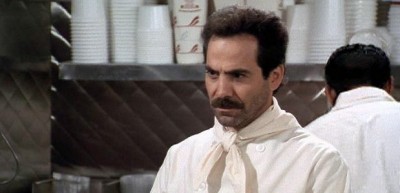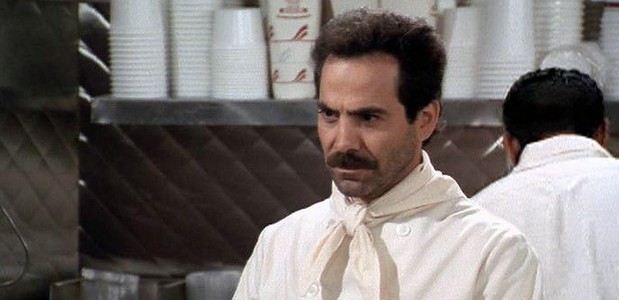
Hitler, the Holocaust, gas chambers, Nazis, concentration camps — these all loom large in our contemporary cultural consciousness. They call forth strong feelings and evoke vivid imagery. At the same time, it is no longer surprising to encounter cheap comparisons to them. It happens all the time: You’re walking down the street, on your way to class or work or the gym — and there’s a crowd of Tea Partiers holding signs depicting Barack Obama as Hitler. Or you’re scanning the comments on a contentious article online — and, inevitably, a commenter compares some group of people to Nazis.
Most of these comparisons are easy to see for what they are: rhetorical crutches holding up the shoddy arguments of uncreative people.
Over the past few days, we at New Voices have come across a number of articles comparing modern political figures to Hitler. A Minnesota group that stands against marriage equality compared gay rights campaigns to Joseph Goebels’s propaganda in World War II era Germany. Mike Huckabee asserted that Obama’s stance on gun control will create a Nazi dictatorship. Chris Matthews, balanced out the equation by comparing supporters of gun rights to Nazis.
Of course, these comparisons are not restricted to public discourse. In 1990, during the internet’s infancy, Mike Godwin created a formula that he applied to all internet chats: As an online discussion grows longer, a gratuitous comparison to Hitler or the Nazis grows increasingly likely. Today, this is known as Godwin’s Law — and today’s conventional wisdom confirms it.
However, of all the needless comparisons to the Holocaust out there – indeed, of all the needless comparisons to the Holocaust being made right now, as you read this – only a small fraction are actually being made by people who think they’re making a real point. Most are being made by someone who has just labeled his friend a Nazi for taking a handful of French fries from his plate. Or, famously, a certain famous Jewish comic tangling with a rigid purveyor of soup. Or some other mildly miffed person in response to some other minor miscarriage of justice.
There are two things going on here: First, blinded by the primal connotations the Holocaust and its attending imagery have taken on, people have begun to misuse them, unaware of how truly painful a memory the Holocaust is for the remaining survivors and their descendants. Second, we Jews have claimed the Holocaust for ourselves – a point to which we will return in a moment.
In an ideal world, the first part would be the only the one that matters. In an ideal world, everyone would receive a good nuanced education regarding the Holocaust. It would not get dropped into petty complaints and partisan political bickering. In an ideal world, everyone would be considerate enough to avoid offending anyone.
And wouldn’t that be nice?
But in the real world, the Holocaust does get misused in bad rhetoric and small complaints – rendering the fact that many Jews would like the Holocaust to belong to us alone a real problem.
We Jews see our world in decidedly post-Holocaust terms. We see the loss of Yiddish, the loss of Europe as a center for world Jewry, the loss of millions of members of our families. We see our whole Jewish world as a creation of the Holocaust. We even see our greatest triumph, the creation of modern Israel, as an effect of the Holocaust, as something that rose from the ashes.
And why shouldn’t we? There’s nothing wrong with looking at it as a uniquely Jewish trauma, nor is there anything wrong with seeing our trauma as unique in history. Every traumatized person or group sees their traumas as special, impossible for anyone else to understand.
But today, Yom Hashoah, the Jewish day of Holocaust remembrance, is a good time to take a step back and realize that a trauma as great as the Holocaust is a trauma for all of humanity. And if we look at it in that light, there’s a way of understanding the proliferation of misappropriated Holocaust references and comparisons that is – dare we say – heartening.
Consider this: Hitler, the Holocaust, gas chambers, Nazis, concentration camps – these loom large in our culture because they have come to represent the purest form of evil. Where uninspired Western rhetoric once fell back on Satan and the forces of Hell to describe anything evil, it now has Hitler and the Nazis. We could look at that as a cheapening of our unimaginable trauma.
Or we could choose to take a more charitable view: We could look around and see that a great wound we thought was ours alone to endure has been taken on by our entire culture. Look around and you will see that our entire culture has accepted the Holocaust as the most basic example of evil.
And if that happens to lead to a great deal of ill-conceived Facebook comments about abortion or gun rights or some other wedge issue of the week, so be it.

